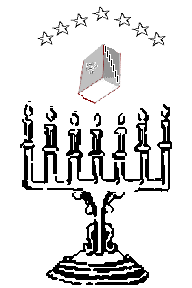I have Orthodox roots on both sides. I teach a course about Cults at a local church's Bible Institute, and here are some of my notes. Listen to their own words, and tell me what we should think:
"The Orthodox Church invokes God's Grace for the sanctification of its members. For this reason, the Church uses sacred ceremonies instituted by Christ or His Apostles.
The sacred ceremony of Baptism with that of Chrismation and the ceremony of the Holy Eucharist with that of Confession are the sacred Mysteria [sacraments] which every Christian should receive as an active communicant of divine Grace […] By Baptism, the Church holds that all optional and original sins are cleansed by the Grace of God.
The most awesome ceremony in the Orthodox Church is the Mysterion [sacrament] of the Holy Eucharist. This ceremony was instituted by Jesus Christ the day before His Crucifixion, as He enriched His Church forever with the Divine Gifts, His own Body and Blood. This ceremony of the Holy Eucharist is both His sacrifice for the salvation of man and a sacred mysterion. The Holy Eucharist is the seal of the proclamation of the communion with God.
It is the only Sacrament offered by the Church in which the elements of bread and wine not only carry the Grace of God, as a mysterion, but are "changed" into and "are" the very Body and the very Blood of Christ, being a propitiatory sacrifice.
This awesome sacrifice has been entrusted to the Church to be RE-ENACTED and given to the faithful for the nourishment of their faith and the forgiveness of their sins in remembrance of the Lord."
"This Church of Christ has in its nature the tendency to become and to grow;
it has the nature to engulf and develop the truths of Revelation; it is to be delved into from time to time to find and pronounce the truths of which the Church is the Pillar.
The Church, as a whole, is infallible, but it is not God-inspired to the extent that it has understood the entire depth of the truths and formulated and proclaimed them to the world. The Church, by nature and duty, from time to time - to settle controversies - formulates, defines, and pronounces some of these Revealed truths. In such instances, the Fathers of the Church have assembled in synods to discuss the disputed points and to decree and interpret the correct meaning of those truths. In doing so, the synods of the Fathers, as a whole and as individuals, have believed that their decisions are infallible. Their decisions, however, are not considered permanent until they are accepted by the "Conscience of the Church," the whole body of the faithful, clergy and laity, who must give their consent.
Christ entrusts His own Being to
the Church, handing down divine Revelation, in oral form, and later recorded in written form, to constitute
Tradition at large.
The teachings and the practices of the Orthodox Church are to be found in the Scriptures
and Sacred Apostolic Tradition, which have been handed down to the Church of Christ in the Revelation of God.
These sacred Sources are essential not only for correct teaching and worship, but especially as Sources of the promises and covenants of God fulfilled in the Person of Christ.
This does not mean that individuals, both clergy and laity, lack freedom to express their own spiritual insights, but
the validity of these insights depends upon acceptance by other Fathers of the Church, without which it is wisest to keep silent and avoid being in opposition.
The highest authority for the interpretation and protection of the truths of the Revelation of God and for the preserving of those which were disputed is the Ecumenical Synod, the official council of bishops.
The 'Conscience of the Church-Ecclesia' is the highest authority of appeal in the Orthodox Church. It is, in reality, the common consent of opinions of faith, hope, and love by all communicants of the Church. This common consent is especially important for faith and morals, which are divine truths. The Conscience of the Church identifies truths indispensable for the faithful.
The Conscience of the Church introduces the ever-existing truths of the Revealed Word for formulation in the Ecumenical Synods and accepts those truths of salvation already formulated by the Ecumenical Synods. The common consent of all members of the Church, accepting or rejecting a truth "formulated" by a synod, constitutes the Conscience of the Church."
The Fundamental Teachings of the Eastern Orthodox Church - Introduction to Orthodoxy Articles - Greek Orthodox Archdiocese of America
All emphases are mine.

 Maybe I'll just mark it funny to be clearer.
Maybe I'll just mark it funny to be clearer.
